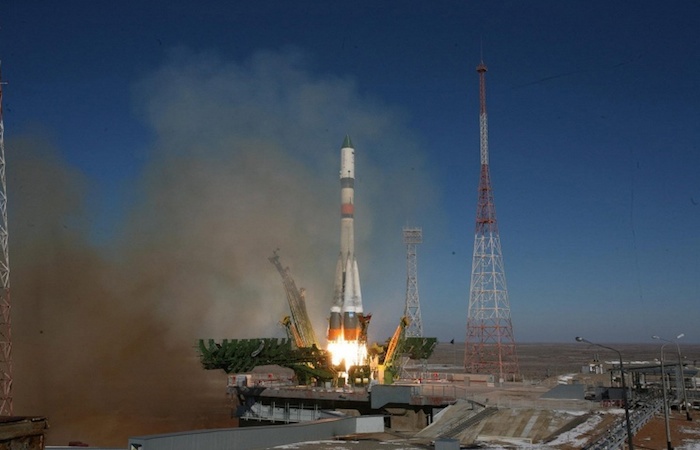.

The launch will be carried out only after the investigation of the Progress cargo spacecraft accident is competed, a rocket and space industry source said
.
The launch of the Soyuz-2.1b rocket with a military satellite, planned for June 5, has been indefinitely postponed - it will be carried out only after the investigation of the Progress cargo spacecraft accident is competed, a rocket and space industry source told TASS on Friday.
Russia’s Progress M-27M cargo spacecraft was launched to the International Space Station (ISS) by the Soyuz-2.1a rocket, but failed to reach the target orbit and burned up in the atmosphere in the morning of May 8. According to the Russian Federal Space Agency (Roscosmos), the accident was due to decompression of the rocket’s propellant and oxidizer tanks, which upset the normal separation of the third stage and the vehicle. Inquiries are now focused on factors that might have been behind decompression.
"Preparations for the launch will be started only after the investigation of the contingency with the Soyuz-2.1a carrier rocket is over," the source said.
According to him, the launch so far is delayed for several days, but may be longer.
The investigation of the Soyuz-2.1a rocket and Progress spaceship accident continues so far. The probe results were to be announced on May 22, however, the Federal Space Agency said then that Roscosmos would make public the probe commission’s final conclusions later. A source familiar with the investigation progress told TASS previously that the investigation might be continued after May 22 because the commission had insufficient data for establishing the exact cause of the accident. It became known later that the versions of the equipment defect and the rocket’s overload during flight were also considered.
The difference between the Soyuz-2.1b rocket and the Soyuz-2.1a version is the use of the RD-0124 engine instead of the RD-0110.
Quelle: TASS
4871 Views
